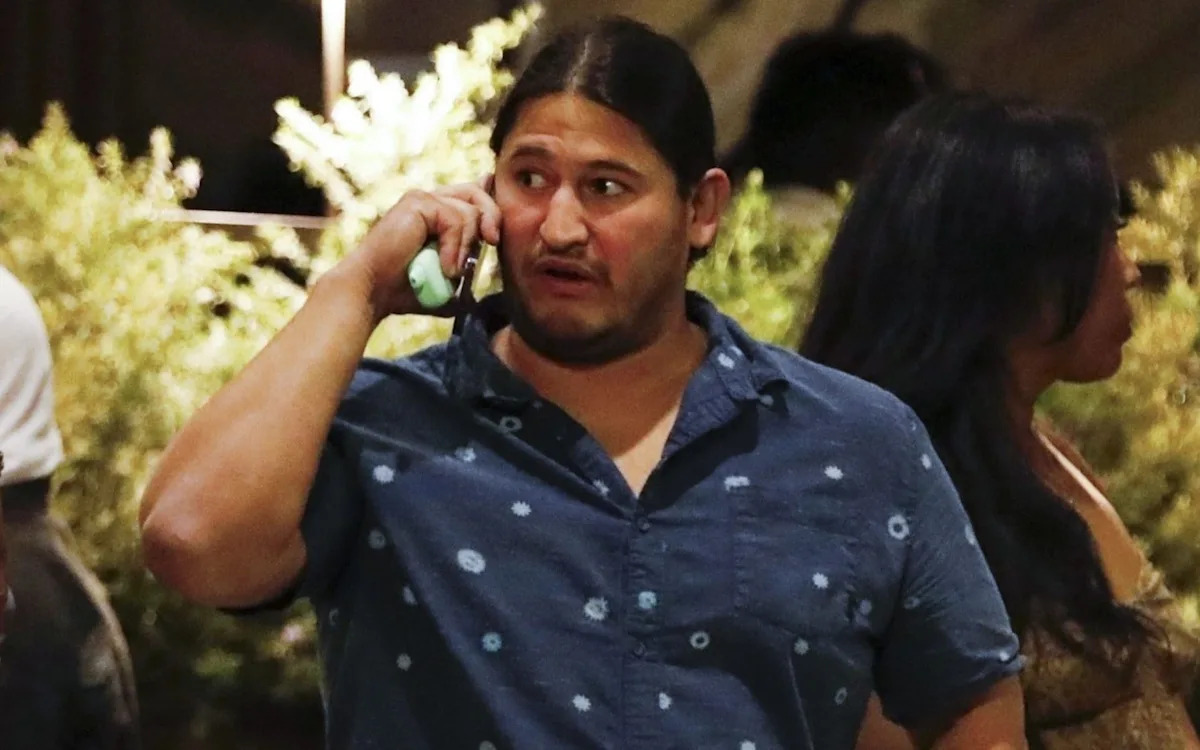The aftermath of the Los Angeles wildfires continues to ripple through communities, with a new chapter unfolding in Altadena. Edwin Castro, the record-breaking $2 billion Powerball winner, has invested $10 million to acquire over a dozen land plots devastated by the blazes. This move has ignited a fierce debate: is it a genuine effort to revitalize a shattered neighborhood, or an opportunistic example of disaster capitalism? As residents grapple with the implications, California Governor Gavin Newsom voices concerns over potential exploitation.
This article delves into Castro’s ambitious project, the anxieties of Altadena residents, and the broader implications for communities recovering from natural disasters. We’ll examine the fine line between investment and exploitation, the role of local government, and the hopes and fears of those directly affected by the wildfires. With perspectives from all sides, we aim to provide a comprehensive overview of this complex situation.
The Eaton Fire and Altadena’s Devastation
In January of 2025, the Eaton Fire, one of the massive blazes in California, ravaged Altadena, leaving behind a trail of destruction. Eighteen lives were lost, and thousands of homes were reduced to ashes. The community was left reeling, grappling with loss and uncertainty. The disaster created a vacuum, opening the door for investors and developers to eye the land.
The speed and intensity of the fires caught many off guard, leaving them with little time to salvage their belongings or make alternative arrangements. The emotional toll on residents was immense, as they witnessed their homes and community vanish before their eyes. As the smoke cleared, the focus shifted to recovery, but the path forward was fraught with challenges.
Edwin Castro’s Vision for Altadena
Edwin Castro, who won the historic $2 billion Powerball jackpot in 2022, has emerged as a key player in Altadena’s potential revitalization. Castro, who grew up in Altadena, acquired 15 properties with the stated intention of rebuilding the “old neighborhood”. He aims to redevelop the land and sell homes at market value, striving to capture the essence of the community before the fires. In an interview with The Wall Street Journal, Castro emphasized his commitment to restoring the neighborhood’s original character.
While many welcome Castro’s investment, others remain wary. Concerns have risen regarding the potential displacement of long-time residents and the changing character of the community. The fear is that market-value prices will be out of reach for many who previously called Altadena home, leading to further disruption and displacement.
Disaster Capitalism and Community Concerns
The term “disaster capitalism” has surfaced in discussions surrounding Castro’s investment. Critics argue that it’s an example of investors capitalizing on a community’s vulnerability following a disaster. Iris Craige, from Strategic Actions for a Just Economy (SAJE), describes it as a “second wave of disaster for Altadenans”, highlighting the targeting of grieving and overwhelmed residents.
A petition opposing large-scale investor purchases has garnered around 1,500 signatures, reflecting the community’s apprehension. Residents fear being priced out of their own neighborhood, losing the social fabric that once defined Altadena. The delicate balance between progress and preservation is at the heart of this debate.
Governor Newsom’s Stance
California Governor Gavin Newsom has taken a firm stance against what he deems “greedy speculators taking advantage” of wildfire victims. In January, Newsom issued an executive order aimed at protecting residents from predatory offers and exploitation. He cited instances of community members receiving unsolicited cash offers far below market value, sometimes while their homes were still ablaze.
Newsom’s intervention underscores the state government’s commitment to safeguarding vulnerable communities during times of crisis. It also sets a precedent for holding investors accountable and ensuring ethical practices in post-disaster recovery efforts.
Castro’s Defense
In response to criticisms, a spokesperson for Edwin Castro defended his actions, stating that he “grew up in Altadena and considers it [his] home”. The spokesperson emphasized Castro’s desire to “invest in it that would also help some impacted homeowners move forward while helping it retain its character and charm.” They highlight that many affected residents are unable or unwilling to rebuild and wish to start over elsewhere.
Castro’s team intends to use pre-existing plans for half of the purchased lots and create new designs for the remaining properties, with a focus on single-family homes. The aim is to strike a balance between modernization and preserving the neighborhood’s original appeal.
Altadena’s Crossroads: Rebuilding or Reinventing?
The situation in Altadena encapsulates the complex challenges faced by communities in the wake of natural disasters. Edwin Castro’s investment represents a potential lifeline for a devastated area, yet it also raises fundamental questions about fairness, community preservation, and the ethics of disaster capitalism. The concerns of residents, coupled with Governor Newsom’s intervention, highlight the need for responsible and community-focused development.
As Altadena moves forward, the path it chooses will serve as a case study for other communities facing similar circumstances. The delicate balance between rebuilding and reinventing, between investment and exploitation, will determine the future of this resilient community. The Powerball winner’s actions have placed Altadena at a crossroads, where the decisions made today will shape its identity for generations to come.

Leave a Reply